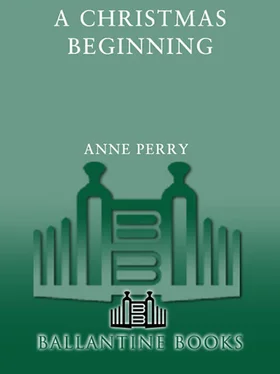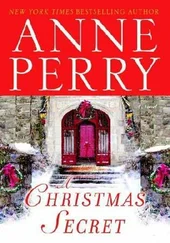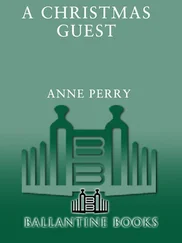“He’s going to have to acknowledge that it was someone she knew,” Warner said aloud. “Nobody’ll want to think so, but you can’t get away from it.” He stirred the porridge a final time. “Then you can start asking the questions that’ll lead us to the truth.” His voice carried more confidence than he must have felt.
Warner ladled the porridge into two bowls and brought it to the table, along with milk and spoons and both salt and sugar. “But what kind of questions?” He faced Runcorn fully now, the awkwardness of pretending he was not really looking for help had been negotiated.
They both started to eat while Runcorn thought carefully of how to reply. The porridge was thick and smooth and the more he ate, the more he liked it. He wondered what he could say that was honest and still kept a remnant of tact? Or did tact matter any more at this point? Surely now it was harsh and dangerous enough that only the truth would serve? If he were taking over this case from someone else, what would he do, were he able to have complete control of it?
Warner was waiting for him to speak, his face pale with the deep exhaustion of fear.
“I’d be plain,” Runcorn told him quietly. “There’s not a lot of use going back over where everyone was because they’ve already said, and no one’s going to admit to a lie. I suppose you haven’t found the blade?”
Warner shook his head.
“It would have come from someone’s kitchen,” Runcorn observed.
“We could see who’s missing one?” Warner suggested doubtfully. “But that’d mean pretty well saying as we thought it was one of them, or we couldn’t even look.”
“And for all we know, it could’ve been washed and put back,” Runcorn added.
Warner winced, his face clearly mirroring his racing imagination, the Sunday joint carved with the weapon of murder.
Runcorn clenched his teeth. This was difficult, but he had promised Melisande that he would help, which meant that he must do so, wherever the truth led him, even to angering Faraday and possibly making an enemy of him. Nobody would welcome the sort of questions that must be asked, but to investigate other than honestly would serve no purpose. However painful the truth of why Olivia had been killed, and by whom, it must be found. And, inevitably, other secrets, follies, and shames would also be uncovered. Perhaps even Melisande would be forced to see things she might have preferred to overlook. Runcorn had a strong feeling that very little would be the same afterwards.
Should he have warned her of his prediction? Should he do so now? Of course he knew the answer in his heart. In the past he had sometimes done what was expedient, said the right things, turned the occasional blind eye. It had won him the promotion Monk had never received. It had also earned him Monk’s contempt, and if he were honest, his own as well. He could never have Melisande’s love—it hurt to say so—but he would keep the integrity which made him able to look at her without shame.
“I don’t know whether Sir Alan will look into the weapon more closely or not,” he finally said to Warner. “But what I would do, were it with me, is to learn more about Miss Costain herself, until I knew everything I could about who really loved her, hated her. Who might have seen her as a threat, or a rival? And to do that I would also have to learn a lot more about her family and all those others who were part of her life.”
“I see,” Warner said slowly, thinking about what that could mean. He searched Runcorn’s face, and saw there was no pretense in it, and no way of evading the truth. “Then that’s what we’ll have to do, isn’t it.” It was a statement. “I’ve only dealt with robberies before, and a little bit of embezzlement, a fire once. It was ugly. I expect this is going to be far worse. We’ll need your help, Mr. Runcorn.” This time there was a lift of doubt in his voice. He was asking as openly as he dared to.
For Runcorn the die was already cast, he had promised Melisande. Warner could add nothing to that. But he realized now that to investigate with any honesty he would have to go to Faraday and ask for his permission, which the chief constable had every right to refuse. Even the thought of facing him, pleading to be allowed to have a part in the case, clenched his stomach like a cramp. But as an investigator he would be useless without Faraday’s approval. The simplest solution might be to ask and be refused. Melisande would have to accept that. She would see Faraday’s inadequacy and recognize it for the pride it was, and excuse Runcorn.
But would he excuse himself? Not even for an instant. Part of honesty would be using his skill to ask Faraday in such a way that he could not refuse. He had made enough mistakes in the past with clumsiness of words, lack of judgment, selfishness, that he ought to have learned all the lessons by now. If he wanted to badly enough, he could place Faraday in a position where it would be impossible for him to refuse help. This was his one chance to become the man he had always failed to be. He had let pride, anger, and ambition stop him.
“I’ll have to have Sir Alan’s permission,” he said to Warner, and saw the constable’s face cloud over instantly. “I couldn’t do it behind his back, even if I would like to.”
Warner shook his head. “He’ll likely not give it.”
“He might if I ask him the right way,” Runcorn explained. “It’d be hard for him to say no in front of you, and whatever other men he has on the case, and perhaps the vicar as well? Even Mrs. Costain. She was very close to Olivia. It would be hard to explain to her why he refused help.”
Warner’s eyes widened with sudden understanding, and a new respect. “Well, I’d never have thought of that,” he said slowly. “Maybe I’ll just have a word with Mrs. Costain, and see as how that can be done. You’re a clever man, Mr. Runcorn, and I’m much obliged to have you on our side.”
So it was that evening that Runcorn walked up the incline through heavy rain beside Warner and they knocked at the vicarage door a few moments after Sir Alan Faraday had gone inside to inform Mr. and Mrs. Costain of his progress on the case. Warner was due to report also, so the housemaid did not hesitate to take their wet coats and show them both into the parlor where the others were gathered close to the fire.
Naomi Costain looked years older than she had a week ago. Her strong features were deeply marked by grief, her skin so pale she seemed pinched with cold, although the room was warm. She wore black, without ornament of any kind. Her appearance did not seem an ostentatious sign of mourning but simply as if she had not thought about it since the tragic events. Her hair was pinned up and kept out of her way, but it did not flatter her.
Costain himself sat in one of the armchairs, his clerical collar askew, his shoulders hunched. Faraday stood with military stiffness in front of the fire, successfully blocking it from anyone else, but apparently unaware of it. He stared at Warner with a look of hope, then seeing Runcorn behind him, his expression closed over.
“Good evening,” he said tersely. “Is there something we can do for you, Mr. Runcorn?” He did not use Runcorn’s police rank, although he knew it.
Runcorn assessed the situation. There was no room for prevarication. He must either explain himself, or retreat. He felt foolish for having allowed Warner to do this in front of Costain and his wife. Now his humiliation would be that much more public. Faraday could not afford to lose face in front of others; this had been a tactical error, but it was too late to mend now. He chose his words as carefully as he could, something he was not used to doing.
“It appears to be a far more difficult case than it looked to begin with,” he began. “I imagine that this close to Christmas, like everyone else, you are shorthanded, especially of men used to dealing with crime.”
Читать дальше










